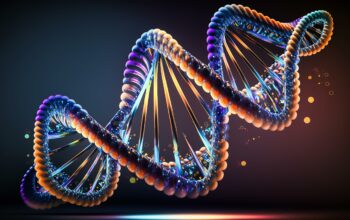In the rapidly evolving field of life sciences, microbiology has emerged as a pivotal discipline, engaging students with its intricate study of microorganisms and their profound influence on human health, ecology, and biotechnological applications. Aspiring microbiologists, therefore, are presented with an exciting opportunity to augment their primary academic focus with complementary minors. This strategic approach not only enriches their educational experience but also enhances their employability and expertise. This article delineates two exceptional minors that can significantly elevate a microbiology major: Biochemistry and Environmental Science.
1. Biochemistry: The Molecular Underpinnings of Life
Biochemistry is an alluring adjunct for students aiming to delve deep into the molecular mechanisms governing biological processes. As a discipline that intersects biology and chemistry, biochemistry provides a robust framework to understand the intricacies of cellular function, metabolic pathways, and genetic regulation. Microbiology and biochemistry together form a symbiotic relationship, wherein the knowledge from one amplifies the insights gleaned from the other.
By pursuing a minor in biochemistry, microbiology students will gain critical competencies in analytical techniques such as chromatography, electrophoresis, and mass spectrometry. These skills are paramount for elucidating the complex chemical interactions within microbial systems, thereby enabling a comprehensive analysis of metabolic processes and enzyme functions. Furthermore, knowledge of biochemical principles is essential for grasping how microorganisms interact with their environments—insights that are vital in fields such as pharmaceutical development and biotechnology.
The convergence of biochemistry and microbiology becomes particularly evident in the burgeoning field of synthetic biology, where understanding genetic engineering techniques necessitates a solid foundation in both disciplines. Students proficient in biochemistry may engage in groundbreaking research, such as the development of genetically modified organisms (GMOs) or the synthesis of novel antibiotics. Such academic pursuits can significantly broaden employment prospects in academia, industry, and governmental research entities.
A minor in biochemistry can also enhance critical thinking and problem-solving skills, as students engage with complex biochemical phenomena. This educational enrichment equips them to address pressing global challenges, including antibiotic resistance and the design of biofuels. Lastly, the analytical abilities honed during biochemistry coursework prove invaluable in laboratories and research settings, fostering a rigorous scientific acumen that benefits both academic and professional endeavors.
2. Environmental Science: Intersection of Microbiology and Ecosystems
The ecological implications of microbiology are profound and multifaceted, making Environmental Science an extraordinarily relevant minor. This branch of study focuses on the interactions between organisms and their environments, scrutinizing the biochemical and physical factors influencing ecological systems. It is paramount for microbiology majors to appreciate the role of microorganisms in environmental processes, including nutrient cycling, bioremediation, and climate change mitigation.
Environmental Science offers microbiology students a holistic perspective on how microbial communities contribute to ecosystem functionality. By understanding microbial roles in soil health, water quality, and atmospheric processes, students can contribute to sustainable practices and innovative environmental management strategies. The coursework typically involves field studies, laboratory work, and data analysis, furnishing students with practical experience that complements their theoretical knowledge in microbiology.
The intersection of microbiology and environmental science is particularly salient in discussions surrounding climate resilience and sustainability. Microbial ecology, a subset of environmental science, examines the complex interactions among microbial populations and their habitats. Students engaged in this field are equipped to explore biogeochemical cycles, leading to a profound understanding of how microorganisms influence ecosystem resiliency and function.
Moreover, a minor in Environmental Science enhances career prospects in various sectors, including conservation, environmental consulting, and public policy. The comprehensive skill set developed through this interdisciplinary approach prepares graduates to tackle global challenges such as pollution, loss of biodiversity, and the impacts of climate change. As industries increasingly focus on sustainable practices, the demand for professionals who can bridge microscopic knowledge with macro-level environmental issues continues to grow.
Integrating Knowledge for Career Advancement
The decision to pursue a minor in either biochemistry or environmental science, or potentially both, can significantly enhance the academic profile of microbiology majors. Each minor serves as a conduit for interdisciplinary knowledge, allowing students to explore diverse career paths and engage in multifaceted research initiatives. Interdisciplinary education fosters innovation, as students trained across different domains can approach problems from unique angles, yielding creative solutions.
Employers in healthcare, biomanufacturing, conservation, and academic research increasingly seek candidates with a diverse skill set and the ability to think critically across disciplines. The fusion of microbiology with biochemistry or environmental science makes graduates exceptionally qualified to work in laboratory environments, research centers, and policy-making institutions. Furthermore, this comprehensive educational background positions graduates favorably for pursuing advanced degrees and specialized certifications, thereby enabling lifelong learning and professional growth.
Conclusion
In conclusion, microbiology majors stand to benefit enormously by incorporating a minor in either biochemistry or environmental science into their academic journey. Each of these minors provides a distinctive yet complementary perspective that enriches understanding, enhances critical skills, and expands career opportunities. As the field of microbiology continues to progress and intersect with other scientific domains, interdisciplinary education will remain a cornerstone for aspiring scientists, equipping them to address the complex challenges of our time comprehensively.








